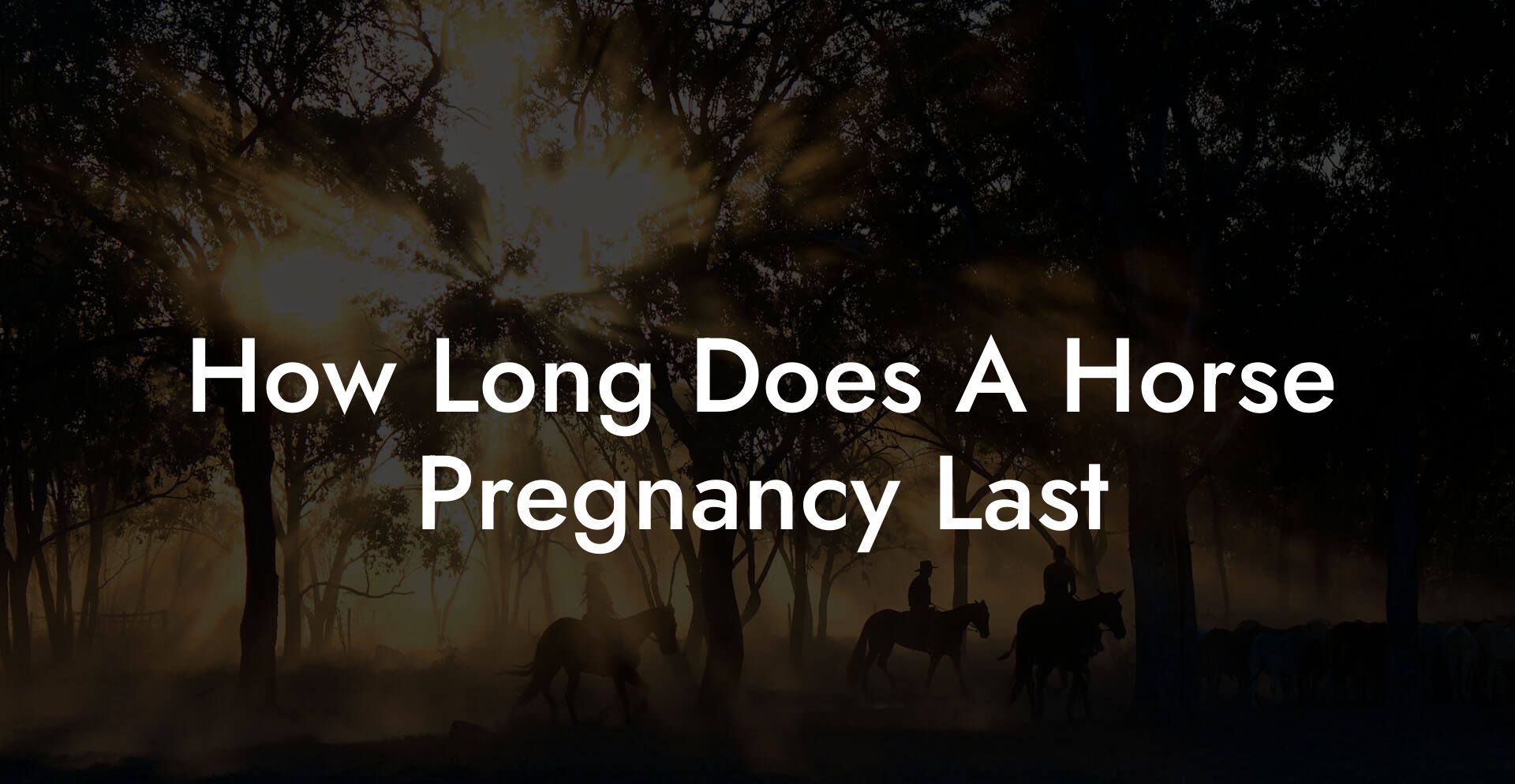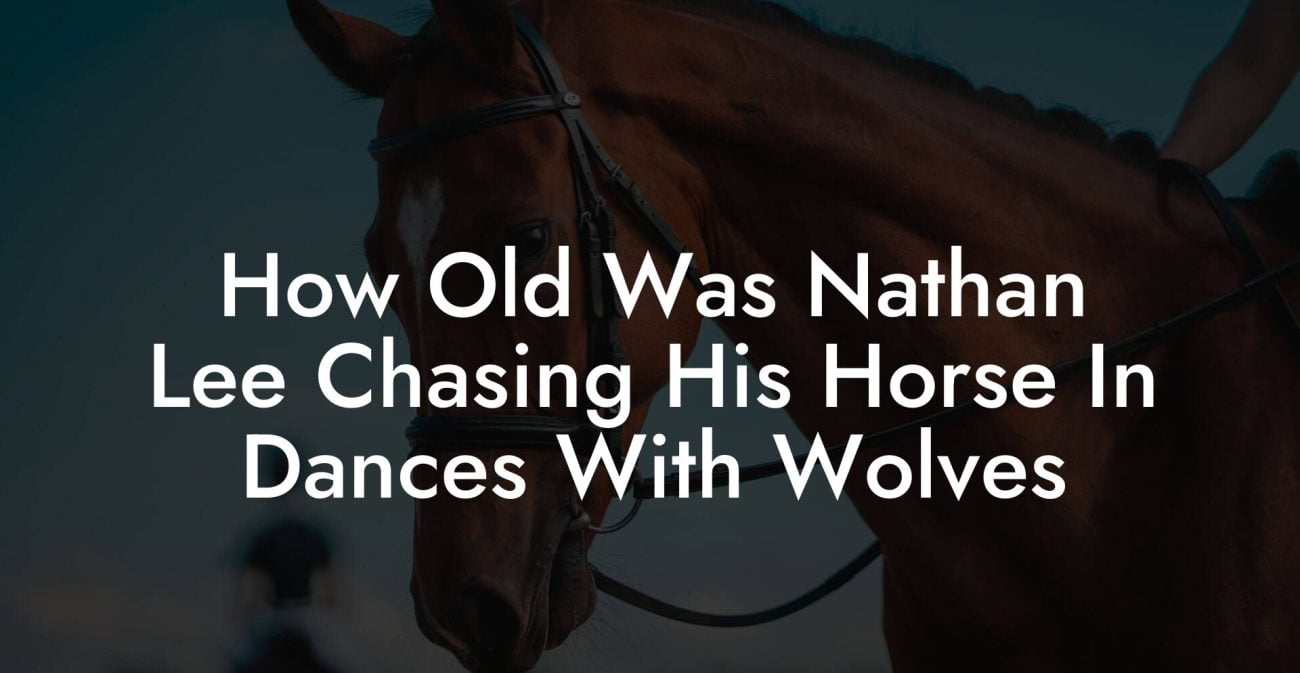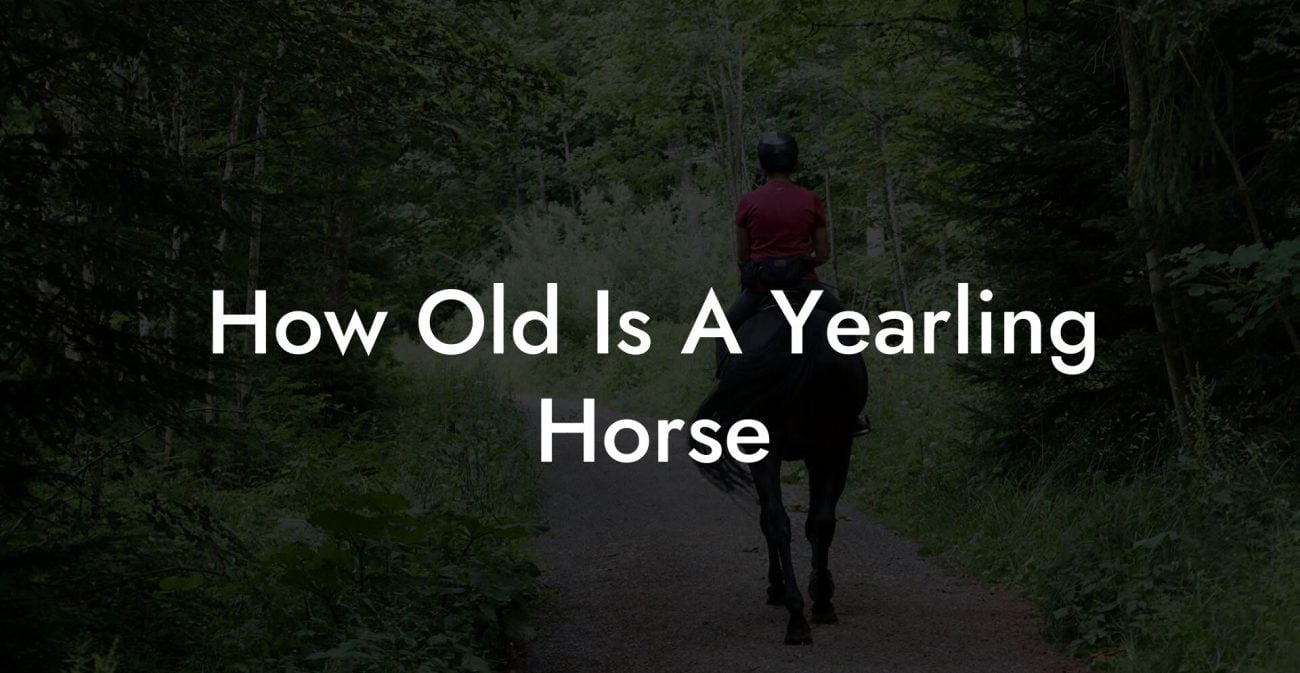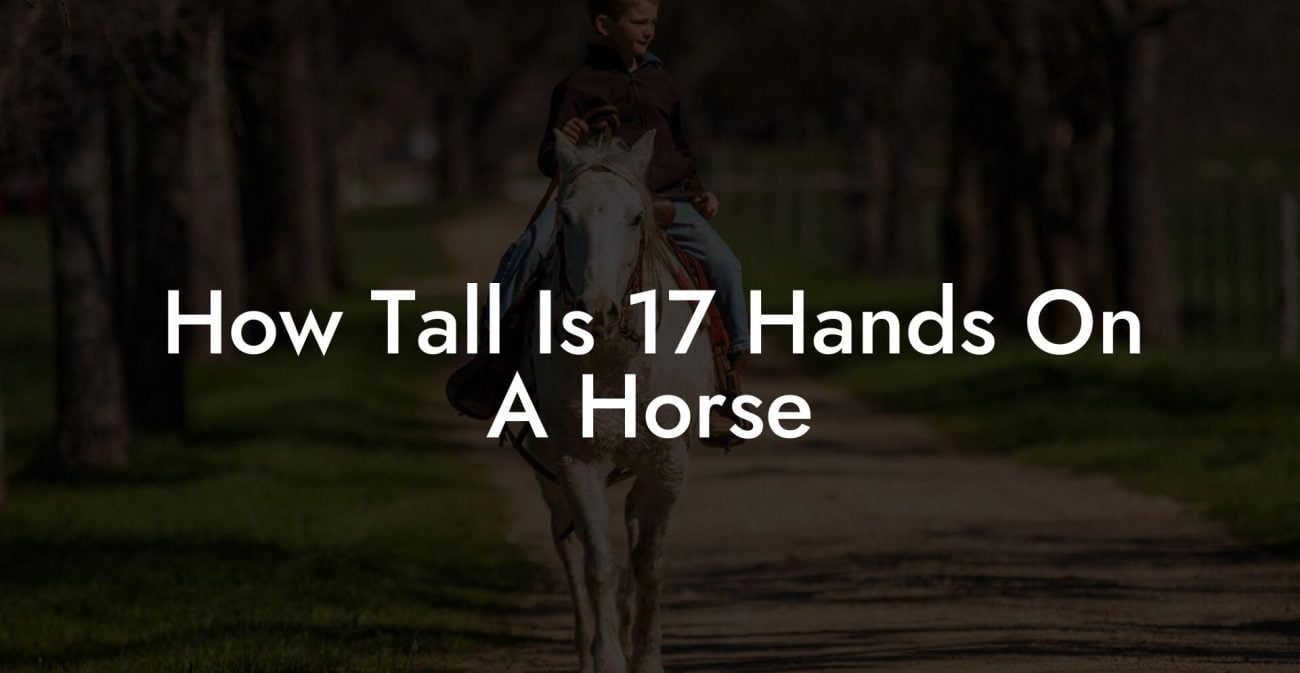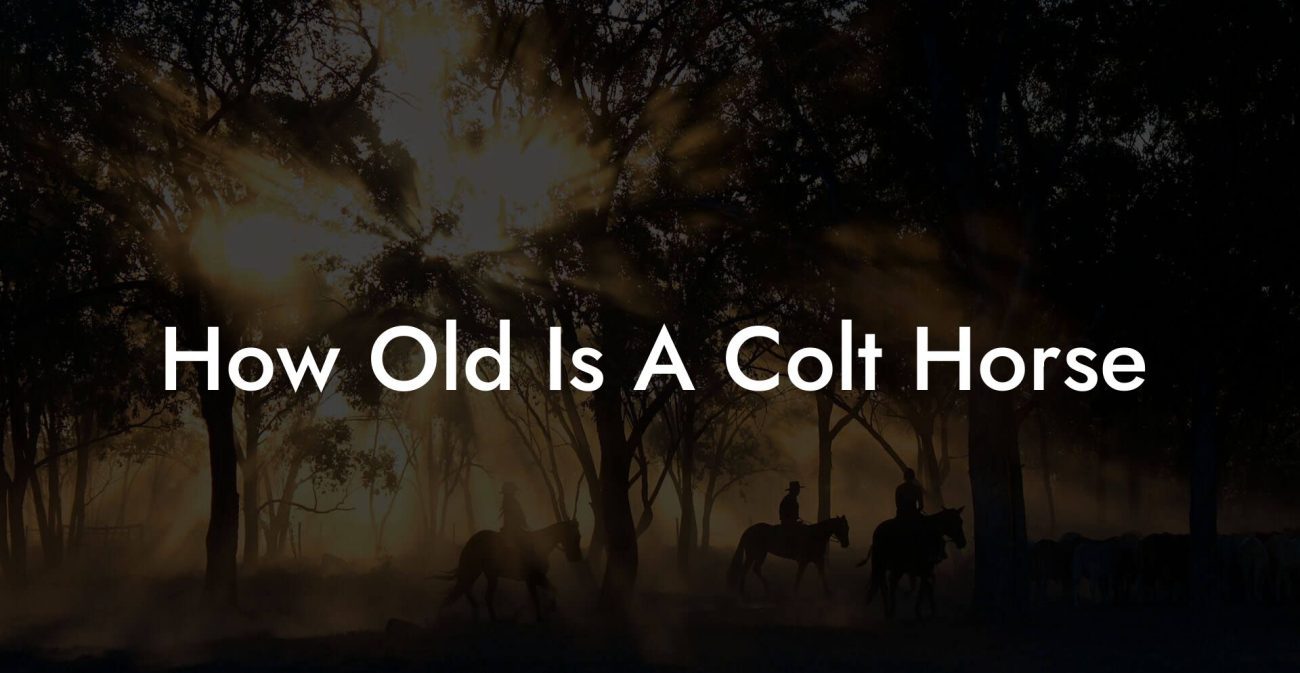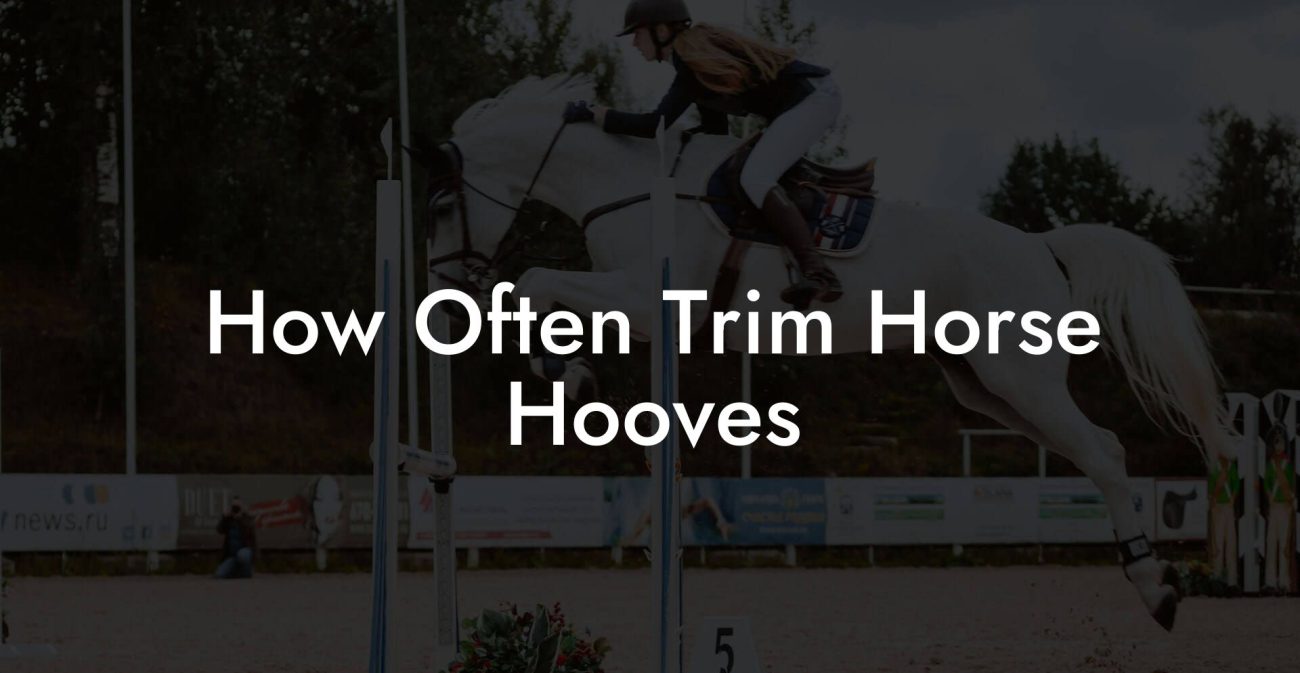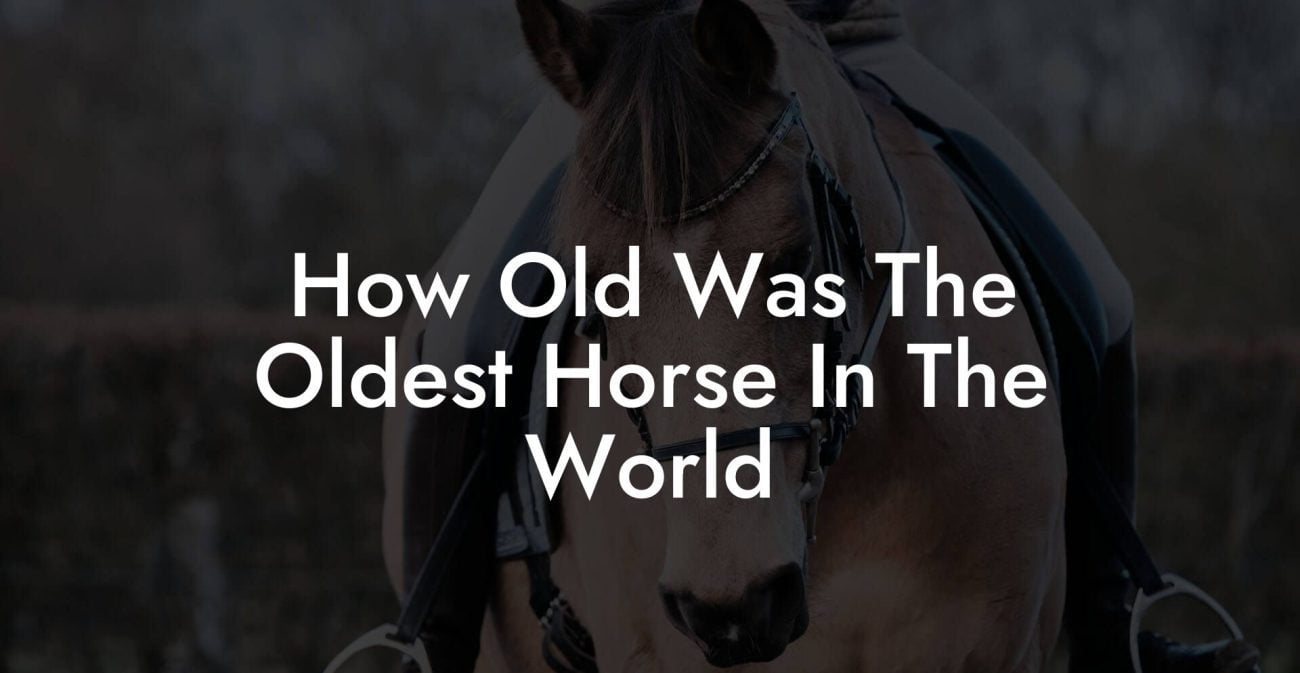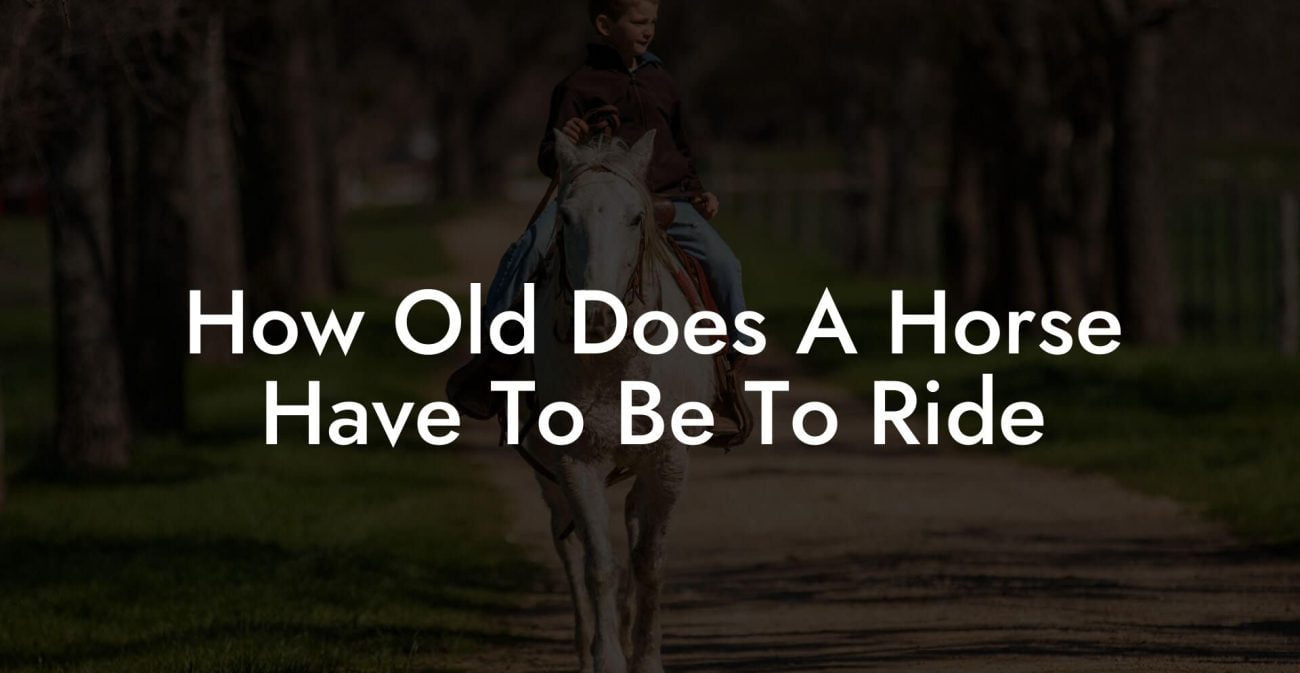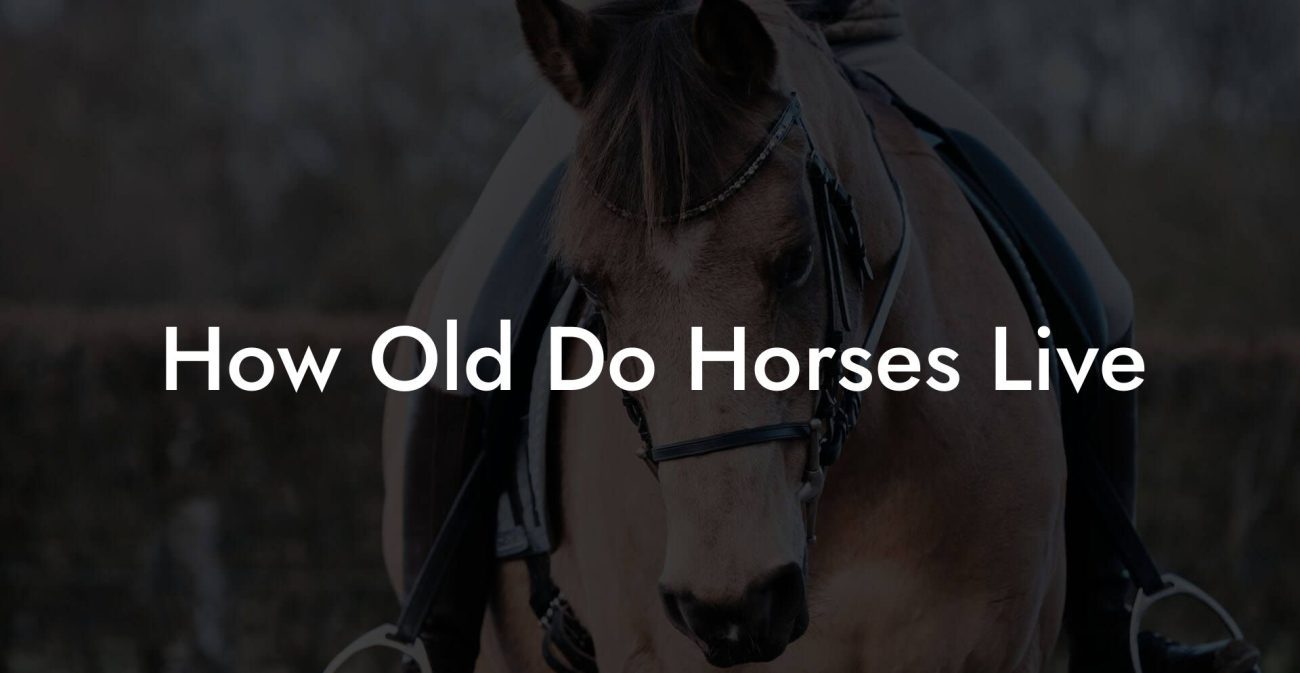Ever wondered if your favorite four-legged companion is embarking on the longest, most unpredictable adventure of its life? Horse pregnancy isn’t just a matter of waiting for a new foal to arrive, it’s an epic journey filled with surprises, care challenges, and plenty of equine drama. In this deep dive into “How Long Does A Horse Pregnancy Last,” we unravel everything from the science of gestation to the best tips for caring for your pregnant mare, all served with a side of sass and savvy insights perfect for Gen-Z and millennial horse enthusiasts.
Quick Links to Useful Sections
- Decoding the Equine Gestation: How Long Does A Horse Pregnancy Last?
- The Science Behind Equine Gestation
- Hormonal Harmony and Foal Formation
- Stages of Gestation
- Factors That Influence Horse Pregnancy Duration
- Genetics: The Role of Breed and Lineage
- Environmental Conditions: The Weather and Beyond
- Nutritional Input: What’s on the Menu?
- Stress Levels and Overall health
- Common Myths Versus Reality: Horse Pregnancy Uncovered
- Myth 1: All Horse Pregnancies Last Exactly 340 Days
- Myth 2: You Can Predict Foaling Exactness Down to the Day
- Myth 3: Stress Doesn’t Influence Horse Pregnancy
- Myth 4: No Special Care Is Needed for a Pregnant Mare
- How to Care for a Pregnant Mare: Tips and Techniques
- Nutrition and Supplements: Feeding the Future
- Exercise: Keeping It Low-Key
- Regular Veterinary Check-Ups
- Stress Reduction and a Calm Environment
- Signs of a Healthy Equine Pregnancy
- Special Considerations for Mares in Different Environments
- Urban Settings
- Rural and Pasture-Based Living
- The Role of Technology in Monitoring Horse Pregnancy
- Preparing for the Big Day: Foaling and Beyond
- Setting Up a Foaling Area
- Emergency Protocols
- Post-Foaling Care for Mare and Foal
- Expert Insights and Community Stories: Real-Life Equine Journeys
- Expert Tip: Monitoring Subtle Behavioral Changes
- Community Spotlight: Breeder Stories
- Resources and Community Support: Your Next Steps in Equine Pregnancy Care
- Equine Pregnancy: Future Trends and Innovations
- Equine Gestation FAQs: Your Questions Answered
- Your Journey to Empowered Equine Pregnancy Care
Decoding the Equine Gestation: How Long Does A Horse Pregnancy Last?
Horse pregnancy, also known as the gestation period, is a fascinating process that typically lasts between 320 and 370 days, with most mares falling right in the sweet spot of around 340 days. But don’t let these numbers fool you; just like in human pregnancies, surprises can pop up at any time. Some pregnancies are shorter, while others seem to test the limits of patience before the arrival of that adorable foal.
The equine gestation period is influenced by a mix of genetic, environmental, and nutritional factors. Just as every sensei has their own unique style, every mare’s pregnancy journey has its own personal twists and turns. Whether you're a seasoned equestrian or new to horse care, understanding this timeline is crucial for planning the ultimate care strategy.
Key phrases to keep in mind: horse gestation period, equine pregnancy duration, and how long does mare pregnancy last. These terms are not only facts of life but also primary keywords in the online world of horse care, ensuring that every detail you discover here resonates with your quest for the perfect equine wellness plan.
The Science Behind Equine Gestation
To truly grasp why a horse pregnancy lasts as long as it does, let’s break down the science behind equine gestation. From the moment the mare conceives, a cascade of hormonal changes kicks into gear, setting the stage for a dramatic transformation.
Hormonal Harmony and Foal Formation
Just like a Netflix series that captivates you with every cliffhanger, the process of embryonic development in horses is equally dramatic. After fertilization, the horse embryo undergoes rapid cell division, forming a delicate structure that’s crucial for establishing the horse’s future. This initial phase is highly sensitive; even slight imbalances in hormones can affect how smoothly the pregnancy unfolds.
Throughout the gestation period, the mare's body produces essential hormones like estrogen and progesterone. These aren’t just buzzwords, these hormones guide the growth of the placenta, maintain the uterine environment, and support the overall development of your future foal.
Stages of Gestation
Much like binge-watching a favorite series, the gestation period in horses unfolds in episodic stages:
- Early Pregnancy (0-90 days): The first trimester is all about establishing the pregnancy. The blastocyst implants itself into the uterine wall, sparking a vital exchange of nutrients and hormones. Think of it as the "pilot episode" that sets the tone for everything to follow.
- Mid-Pregnancy (90-270 days): During this extended middle phase, the embryo transforms into a fetus, and the foundations of foal development are solidified. It’s a time of rapid growth and development where the mare might start showing subtle changes in behavior and appetite.
- Late Pregnancy (270-370 days): The final stretch involves finishing touches as the foal gains weight and prepares for the big debut. The mare can become protective, and careful management is critical to ensure that both the mother and the foal are in top shape.
Understanding these phases is essential not only for breeding enthusiasts but also for anyone involved in day-to-day horse care. It’s like planning an epic road trip, the more you know about the stages, the better equipped you are to handle the unexpected twists along the way.
Factors That Influence Horse Pregnancy Duration
Horse gestation is not set in stone; it’s a dynamic process that can be influenced by numerous factors. Here, we break down what can cause variations in the length of a mare’s pregnancy.
Genetics: The Role of Breed and Lineage
Just like the quirks inherited from your grandmother, genetic factors play a significant role in determining the length of a pregnancy. Some horse breeds naturally have shorter or longer gestation periods, wiring in their unique schedules. For instance, Thoroughbreds tend to stick close to the average of 340 days, whereas other breeds might swing a bit longer or shorter.
Environmental Conditions: The Weather and Beyond
Your mare does not exist in a vacuum, environmental elements such as temperature, humidity, and even seasonal changes can affect her pregnancy. During extreme weather conditions, her body might adjust the gestation length as a survival tactic to ensure the best possible environment for the foal’s birth.
Nutritional Input: What’s on the Menu?
nutrition is king, queen, and the whole royal court when it comes to maintaining a healthy pregnancy. A balanced diet rich in vitamins, minerals, and energy supports the mare’s well-being and can influence the duration of her gestation. Conversely, nutritional deficiencies or imbalances could potentially alter the timeline or affect the foal’s development.
Stress Levels and Overall health
A stressed mare is like a smartphone running multiple apps at once, it might slow down or malfunction, leading to complications. Stress from environmental changes, transportation, or even competition in the show ring can impact the hormonal balance necessary for a healthy pregnancy. Maintaining a calm, supportive environment is imperative.
By keeping these factors in mind, breeders and horse owners can better anticipate and manage the gestation period, ensuring the mare and foal are as healthy and happy as possible.
Common Myths Versus Reality: Horse Pregnancy Uncovered
There are plenty of myths swirling around about horse pregnancies, and it’s time to set the record straight. Let’s debunk some of the most common misconceptions you might have heard.
Myth 1: All Horse Pregnancies Last Exactly 340 Days
Reality: While 340 days is the average, the gestation period can vary anywhere from 320 to 370 days. Hair-trigger differences in genetics, environment, and care mean there’s plenty of room for variability.
Myth 2: You Can Predict Foaling Exactness Down to the Day
Reality: Much like predicting the next viral meme, pinpointing the exact day of foaling is nearly impossible. Veterinarians use the expected due date as a guideline, but nature always keeps a few surprises up its sleeve.
Myth 3: Stress Doesn’t Influence Horse Pregnancy
Reality: Stress is a significant factor. A calm, supportive environment not only keeps your mare happy but also contributes to a healthier and more predictable gestation period.
Myth 4: No Special Care Is Needed for a Pregnant Mare
Reality: A pregnant mare’s needs evolve throughout gestation. From tailored nutrition plans to specific exercise regimens and extra veterinary check-ups, every stage demands its own set of care strategies.
Debunking these myths not only saves you time and worry but also ensures you’re leveraging the best practices for optimal equine care during this monumental phase.
How to Care for a Pregnant Mare: Tips and Techniques
Caring for a pregnant mare is a balancing act between science and heart. Whether you’re an experienced rider or a newcomer to the world of horses, these practical tips will help you provide the best possible care during the gestation period.
Nutrition and Supplements: Feeding the Future
A nutrient-dense diet is the foundation of any healthy pregnancy, human or equine. Focus on providing high-quality forage, balanced grains, and specially formulated supplements to ensure your mare gets the vitamins and minerals needed for maximum foal development.
- Forage First: Ensure that hay or pasture makes up the bulk of the diet, offering a natural and fibrous base for digestion.
- Grains and Calories: As the pregnancy progresses, the mare might need additional calories. Work with an equine nutritionist to tailor the right blend of grains based on her activity level and body condition.
- Essential Supplements: Consider supplements like omega-3 fatty acids, vitamin E, and selenium, which support muscle function, immunity, and overall well-being.
Exercise: Keeping It Low-Key
While a regular exercise regimen is crucial, heavy workouts are a big no-no for a pregnant mare. Instead, opt for gentle, low-impact activities such as leisurely rides, controlled lunging, or basic ground work. These activities help maintain muscle tone and circulation without straining the mare’s body.
Remember, the goal is to keep both the mare and foal comfortable and healthy. Over-exertion can lead to undue stress or even complications as the foal grows.
Regular Veterinary Check-Ups
Just as you’d see a doctor during a human pregnancy, regular visits from an experienced equine veterinarian are essential. Routine ultrasounds and health check-ups not only track the foal’s progress but also catch any potential issues before they escalate.
Keep a close dialogue with your vet regarding the mare’s diet, exercise, and overall behavior. A proactive approach goes a long way to ensure the entire pregnancy proceeds without any hiccups.
Stress Reduction and a Calm Environment
Creating a soothing environment for your pregnant mare is critical. Reduce sudden changes in her daily routine and limit exposure to stressful stimuli like noisy equipment or overcrowded barns. Whether it’s playing soft music or providing an enriched pasture experience, every little effort counts.
These care tips not only help in the smooth progression of the pregnancy but also ensure that when the big day arrives, both mare and foal are ready to take on the world.
Signs of a Healthy Equine Pregnancy
Knowing what to look for can alleviate a lot of worry when it comes to horse pregnancies. Here are some key signs that indicate your mare’s pregnancy is on track:
- Steady Weight Gain: A gradual increase in weight is a strong indicator that the mare is nourishing both herself and her developing foal adequately.
- Active Behavior: A healthy mare remains alert, curious, and responsive to her surroundings, even if she slows down a tad in the later stages.
- Regular Movement: Continued mobility and regular bathroom habits suggest that everything in her system is functioning as it should.
- Clean Vital Signs: Veterinarians typically monitor heart rate, respiration, and temperature. Any drastic changes might warrant a closer look.
- Responsive and Calm Demeanor: A relaxed, contented demeanor in the mare is a good sign of low stress levels and overall health.
Keeping an eye on these indicators not only helps you monitor your mare’s progress but also alerts you early on if something seems off. Early intervention is the key to mitigating any potential risks.
Special Considerations for Mares in Different Environments
No two barns are alike, environmental variables can have a huge impact on how a mare experiences pregnancy. Whether you’re managing a bustling equestrian center or a cozy hobby farm in the country, here are some special considerations.
Urban Settings
For those keeping horses in urban settings or smaller yards, space can sometimes be limited. Ensure that the stall or paddock is free of hazards and provides ample room for your mare to move around comfortably. Stress levels can be higher in these environments due to increased noise and activity, so consider additional measures to maintain a calm habitat.
Rural and Pasture-Based Living
Pasture management and weather exposure add an extra dimension to rural horse care. Ensure that your horse has access to shelter during extreme weather and that the pasture is free of toxic plants. Regular rotations of grazing soil can also help in preventing overgrazing, which, in turn, ensures your mare is fed with high-quality forage.
Whether urban or rural, the goal remains the same: creating a stable, supportive environment that accommodates the unique needs of a pregnant mare. This holistic perspective not only aids in the physical process of gestation but also nurtures the emotional well-being of your equine friend.
The Role of Technology in Monitoring Horse Pregnancy
In the digital age, even age-old practices like horse care are getting a modern makeover. Today, innovative technologies are increasingly part of equine management, and pregnancy monitoring is no exception.
Modern equine practices now incorporate wearable devices that track vital signs, GPS locators that monitor movement patterns, and smart scales that record weight changes. These tools empower horse owners with data, enabling proactive decisions about exercise, nutrition, and medical interventions.
Beyond wearables, telemedicine and digital record-keeping have made it easier than ever for veterinarians to remotely assess a mare’s condition. This blend of technology and traditional care methods is revolutionizing how we approach equine gestation, making the entire process as efficient as it is thorough.
Preparing for the Big Day: Foaling and Beyond
The arrival of a foal is a moment of pure magic mixed with a bit of organized chaos. Preparation is key, and there are several steps you can take well ahead of the due date.
Setting Up a Foaling Area
A dedicated foaling area should be clean, spacious, and safe, think of it as a five-star hotel for your soon-to-be newborn foal. Ensure the bedding is fresh, the area is free from hazards, and that there’s a comfortable resting space for the mare. Some facilities use portable foaling stalls that make cleanup a breeze while keeping the environment pristine.
Emergency Protocols
No amount of planning can eliminate all surprises, so it’s essential to have an emergency plan in place. Establish a direct line of communication with your veterinarian, and know the signs of labor distress. Having a comprehensive foaling kit on hand, including antiseptics, clean towels, and even extra supplements, can make all the difference when every minute counts.
Post-Foaling Care for Mare and Foal
Once the foal makes its grand entrance, the focus shifts to post-foaling care. The mare will need extra attention to recover from the birthing process. Regular veterinary check-ups, continued nutritional support, and monitored exercise are all crucial during this period. Meanwhile, the newborn foal’s first few weeks are dedicated to bonding, nursing, and rapid growth.
Preparing for foaling is much like gearing up for a major event, it takes planning, a dash of flexibility, and a whole lot of love.
Expert Insights and Community Stories: Real-Life Equine Journeys
Listening to experts and tapping into community experiences can provide invaluable insights into the ups and downs of horse pregnancy. From seasoned breeders to innovative equine veterinarians, the collective wisdom emerging from the equestrian community is both inspiring and enlightening.
Expert Tip: Monitoring Subtle Behavioral Changes
Veteran equine professionals stress the importance of keeping a close eye on your mare’s behavior long before the foaling process starts. Changes in eating habits, energy levels, or even social interactions can signal that something is amiss. Early intervention based on these subtle cues often leads to smoother outcomes.
Community Spotlight: Breeder Stories
Consider the experience of Lisa, a passionate mare owner from the Midwest. Lisa recalls the anxious excitement during her mare’s 350-day pregnancy. “Every day felt unique, you’d have moments of pure joy interspersed with worry. But connecting with other horse lovers through online forums not only validated my experiences but also gave me tips on natural supplements and calming techniques that truly made a difference.”
These shared stories remind us that every pregnancy is a journey, a blend of scientific processes, heartfelt moments, and the support of a vibrant community. Let the experiences of others guide your own adventure in equine care.
Resources and Community Support: Your Next Steps in Equine Pregnancy Care
Ready to level up your horse care game? Explore a wealth of resources designed to support you every step of the way. Whether you’re searching for in-depth care guides, nutritional advice, or simply a community of like-minded equine enthusiasts, the options are endless.
- Equine Health Forums: Join online communities where experienced breeders and young enthusiasts alike share their insights on pregnancy care, foaling, and holistic horse wellness.
- Veterinary Resources: Websites like the American Association of Equine Practitioners (AAEP) offer valuable articles, webinars, and even virtual consultations. These platforms are treasure troves for evidence-based information and updates on the latest equine research.
- Local Equine Clubs: Connect with local horse clubs or stables that host workshops on equine pregnancy management and general horse care. These community events often feature expert speakers and hands-on demonstrations.
- Social Media Channels: For a mix of fun and expertise, follow popular Instagram and TikTok equine influencers who offer daily tips, care routines, and the occasional humorous behind-the-scenes look at life on the ranch.
Whether you’re looking to dive into advanced care techniques or simply exchange tips with fellow horse enthusiasts, these resources can guide you through every twist and turn of your mare’s pregnancy journey.
Equine Pregnancy: Future Trends and Innovations
The world of horse care is evolving, thanks in part to advances in veterinary medicine, nutrition science, and technology. The future holds promising breakthroughs that could revolutionize the way we manage equine pregnancies.
One of the most exciting trends is the integration of wearable technology to monitor pregnant mares 24/7. These devices can provide real-time data on vital signs, stress levels, and even sleep patterns, allowing for a proactive approach to managing the health of both mare and foal.
Furthermore, researchers are exploring gene therapy and new nutritional formulations that could enhance foal development and reduce complications. As these innovations become mainstream, you can expect refined care procedures and improved outcomes that marry the best of traditional wisdom with cutting-edge science.
Stay tuned to reputable equine care sources and veterinary publications, you might just catch the next big breakthrough that transforms horse pregnancy management forever.
Equine Gestation FAQs: Your Questions Answered
Still curious about the ins and outs of horse pregnancy? Check out these frequently asked questions that tackle everything from gestation lengths to advanced care tips.
1. How long does a typical horse pregnancy last?
A typical horse pregnancy lasts between 320 and 370 days, with most mares delivering foals around the 340-day mark. However, variations are normal and can depend on numerous factors.
2. What factors can influence the duration of a mare’s pregnancy?
Genetics, environmental conditions, nutritional status, and stress levels all play a role in influencing the overall duration of a horse’s pregnancy.
3. Can a mare’s diet really affect gestation?
Absolutely. A balanced, nutrient-rich diet is essential for maintaining a healthy pregnancy. Deficiencies or imbalances in key nutrients can potentially affect fetal development and prolong the gestation period.
4. Are there any effective ways to monitor a mare’s pregnancy at home?
Yes. Modern technology offers several tools, from wearables that track vital signs to smartphone apps that log dietary and behavioral changes. However, regular veterinary check-ups remain critical.
5. What are some early signs of a healthy equine pregnancy?
Steady weight gain, regular movement, a calm demeanor, and consistent eating habits are all positive indicators. Any drastic changes in behavior should be discussed with your veterinarian.
6. How can I prepare my mare for foaling?
Set up a clean, safe foaling area, maintain a consistent and balanced diet, reduce stress, and work closely with your veterinarian to ensure a smooth transition when the time comes.
7. Can advanced reproductive technologies help in managing equine gestation?
Yes, advanced technologies like ultrasound imaging and wearable monitoring devices can help provide continuous insights into the pregnancy’s progress, enabling timely intervention if necessary.
Your Journey to Empowered Equine Pregnancy Care
Embracing the journey of a horse pregnancy is as much an art as it is a science. With the right blend of scientific knowledge, expert insights, community support, and modern technology, you can confidently navigate this intricate process. Every foal born is a testament to nature’s brilliance, the dedication of horse caregivers, and the magic that happens when love meets science.
Remember, every afternoon spent ensuring your mare’s health isn’t just routine, it’s an investment in the future of your equine family. Whether it's debunking myths, fine-tuning nutritional plans, or implementing cutting-edge tech, every step counts towards a smoother, happier journey.
So, harness your curiosity, stay connected with the latest insights, and join a community that celebrates the dynamic world of equine care. This isn’t just about managing a pregnancy; it’s about creating an environment where both mare and foal can thrive, grow, and share their incredible journey with you.
Let this guide be your launchpad, your comprehensive resource for wisdom and creativity in the realm of horse pregnancy. Your journey to empowered equine care starts now, so keep learning, stay curious, and celebrate every miraculous moment along the way!

